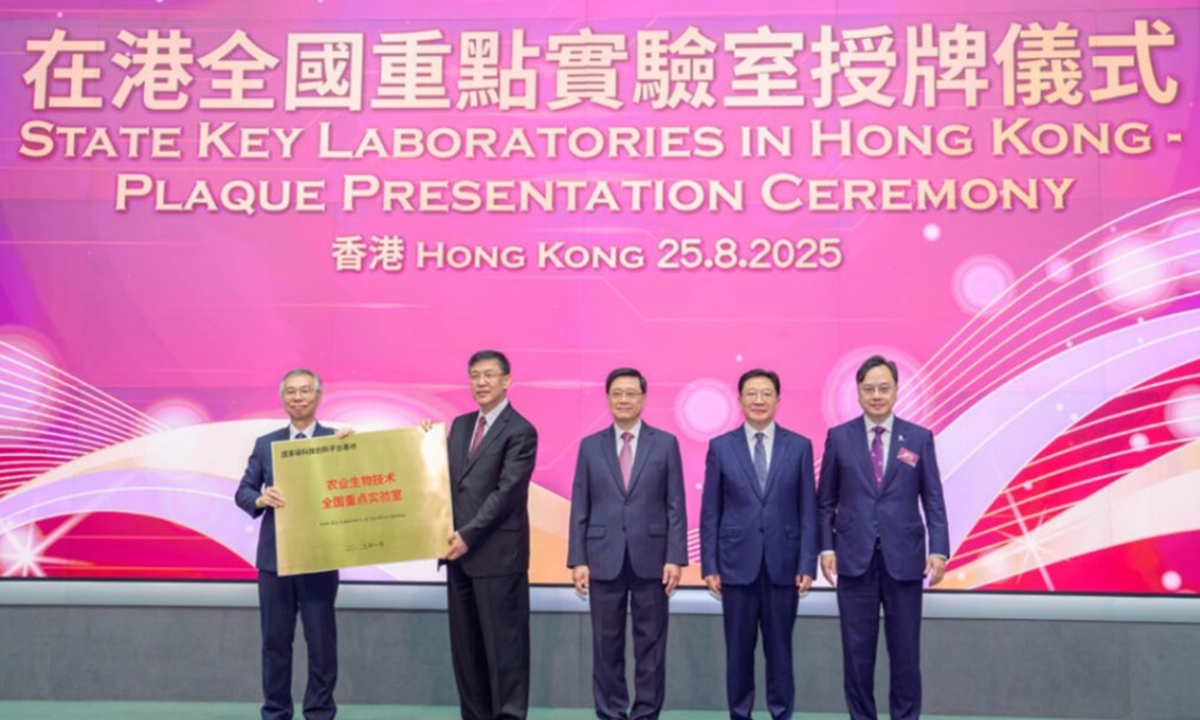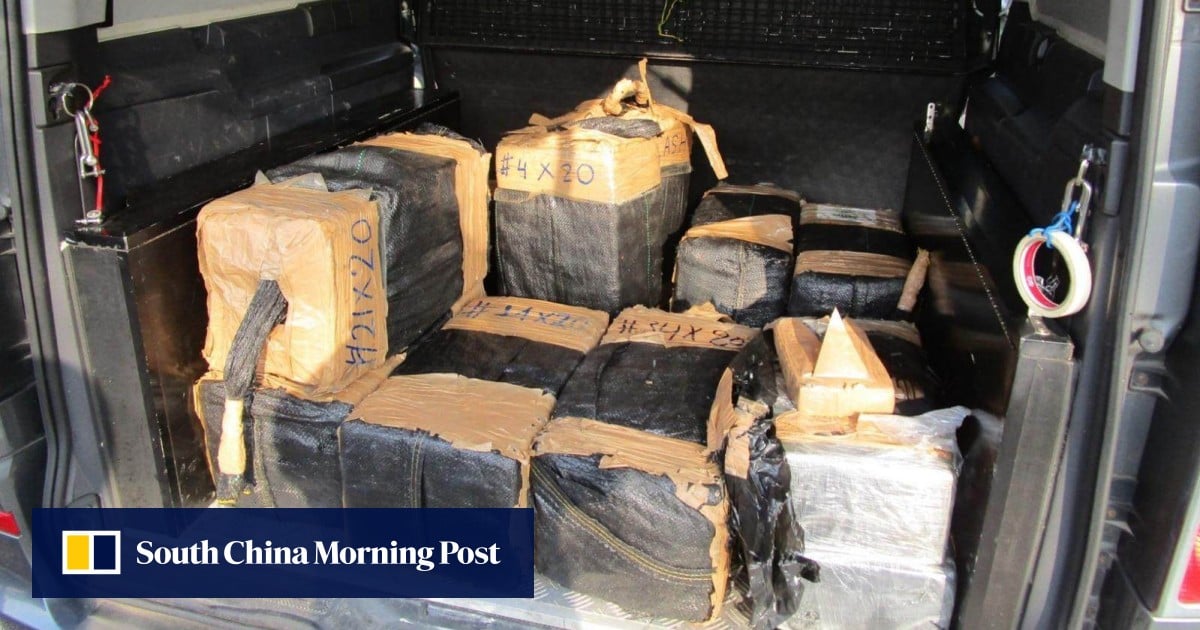Officials attend the plaque presentation ceremony of the State Key Laboratories in Hong Kong on August 25, 2025. Photo: Screenshot from media reports
China’s Ministry of Science and Technology has approved 15 laboratories in the Hong Kong Special Administrative Region (HKSAR) to be designated as National Key Laboratories (NKL), with the official plaque-awarding ceremony held on Monday, according to the HKSAR government. The HKSAR Chief Executive John Lee said the ceremony shows that these laboratories possess world-class capabilities in basic research, technological innovation and tackling critical core technologies, highlighting Hong Kong’s strong research capacity.
Lee expressed confidence that the NKLs in Hong Kong will serve as important platforms to promote collaboration with leading universities and research institutions both domestically and internationally, attract top research talent from around the globe and support Hong Kong’s development into a hub for high-end international talent, according to a statement from the HKSAR government.
Zhou Ji, director of the Liaison Office of the central government in the HKSAR, said at the ceremony that the central government has introduced a series of policies to support and benefit Hong Kong in areas such as opening up science and technology programs, facilitating cross-border funding, platform development, and the sharing of facilities and equipment.
Cooperation in science and technology between Hong Kong and the Chinese mainland continued to deepen, yielding fruitful results. The recent reorganization of NKLs in Hong Kong once again demonstrates the central government’s strong support for the city’s scientific and technological development, Zhou noted.
Local talents can now participate in experiments and projects on a national scale. Hong Kong scientists and scholars can work together with a community of top brains in the joint-experts research, Chu Kar-kin, a veteran commentator based in the HKSAR and member of the Chinese Association of Hong Kong and Macao Studies, told the Global Times on Monday.
“Local universities too may engage in a wider platform, enjoy opportunities and offer contributions as a member of the national team,” Chu said, noting that the arrangement is another effort to facilitate Hong Kong’s integration and collaboration with the motherland.
Hong Kong has the same pace in industry-orientation under the country’s 15th Five-Year Plan period (2026-30), and the establishment of those NKLs is also a milestone to the advancement of technological betterment and creativity nationwide, the expert said.
Of the 15 NKLs established in Hong Kong, five are affiliated with the University of Hong Kong, four with the Chinese University of Hong Kong (CUHK), two with City University of Hong Kong, two with the Hong Kong University of Science and Technology (HKUST), one with the Hong Kong Polytechnic University (PolyU), and one jointly with PolyU and HKUST, according to local media reports.
The labs cover areas such as infectious diseases, neurological disorders, biomedical technology and optical quantum materials. Their directors include HKUST President Nancy Ip, HKU President Xiang Zhang and infectious disease expert Yuen Kwok-yung, among others.
At the CUHK, the newly established laboratory for quantum technology spans multiple cutting-edge fields, including quantum sensing and precision measurement, nano-photonics and integrated photonics and quantum materials and quantum information theory, according to the university.


